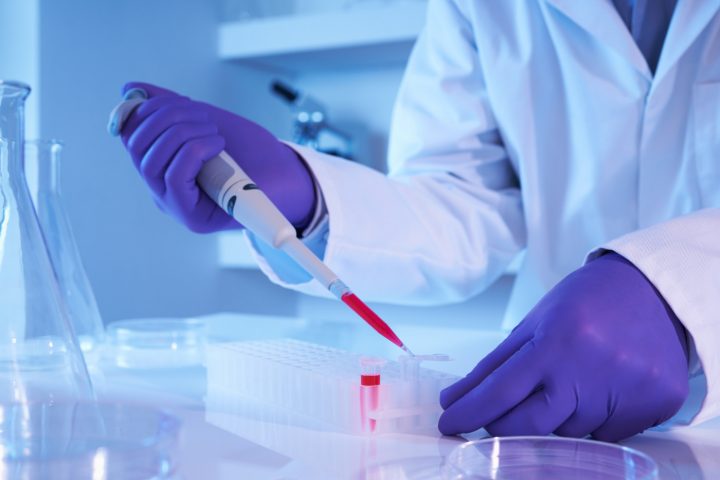Gene Therapy, KB407, Seen to Restore CFTR Protein in Cell Studies
Written by |

Photo by Shutterstock CF doctors and researchers deeply care about the work they're doing and the patients they serve.
A potential gene therapy for cystic fibrosis, KB407, is able to induce the expression of normal CFTR protein in cell models of CF, its developer, Krystal Biotech, reports.
These data are in the poster, “In vitro Pharmacology of KB407, an HSV-1 based gene therapy vector, for the treatment of cystic fibrosis” (abstract 282, page 131), being presented at the 2020 annual meeting of the American Society of Gene & Cell Therapy (ASGCT). This year’s May 12–15 meeting is online due to the COVID-19 pandemic.
CF is caused by mutations in the gene cystic fibrosis transmembrane conductance regulator (CFTR), which affect the protein encoded by the gene (also named CFTR) and, subsequently, the flow of chloride ions and water through cells that produce mucus, sweat, saliva, tears, and digestive enzymes. That flow is regulated by the CFTR protein.
A gene therapy for CF aims to deliver a non-mutated version of the CFTR gene into these cells, allowing for a working CFTR protein. An advantage is that this approach could work equally well regardless of a person’s particular CFTR mutation; some targeted CF therapies only work with specific mutations, and more than 1,700 are known in this disease.
KB407 is delivered to cells using an engineered version of herpes simplex virus 1 (HSV-1) based on Krystal’s STAR-D platform.
Viruses are useful vectors for gene therapy because they have evolved to be very efficient at delivering genetic material into cells. The particular type of HSV-1 used in KB407 is reported to be replication-defective; that is, it is able to get its genetic payload (i.e., a full-length CFTR gene) into cells, but it will not replicate and infect other cells.
These new data on KB407 come from in vitro experiments, performed in cells in a laboratory setting.
Researchers found that in lung cells lacking CFTR, KB407 treatment successfully restored protein production, as assessed by multiple molecular tests.
Experiments were also carried out using organoids derived from four CF patients with different CFTR mutations. Organoids are cells grown in culture using a particular three-dimensional structure that more closely resembles how cells are organized within human tissues.
Results showed that, even at relatively low doses, KB407 rescued CFTR protein production in these organoids.
“Taken together, these data indicate that KB407 capably infects relevant airway epithelia, efficiently produces functional human CFTR, and molecularly corrects multiple CFTR defects, supporting application of KB407 as a novel, broadly applicable gene therapy for the treatment of CF,” the Krystal researchers wrote.
“We are … encouraged by the pre-clinical data to date on KB407, with potential to treat cystic fibrosis, that demonstrates the breadth of our STAR-D platform and are excited that we have an opportunity to share this at ASGCT,” Krish S. Krishnan, the company’s chairman and CEO, said in a press release.
Krystal will continue its preclinical studies of KB407, and plans to file an investigational new drug application, requesting trials in people, in 2021.






